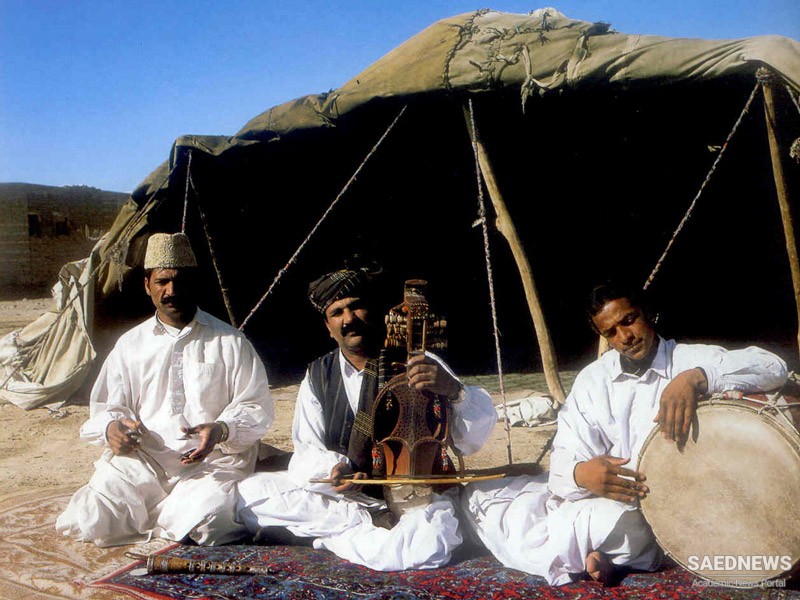There is also a dispute about which dialect, or dialects, ought to be the basis of the literary language. On the whole, writing and reading Balochi is at the moment an exclusive activity carried out by a limited number of persons belonging to the Balochi literary elite. Balochi is, as a minority language, largely restricted to traditional and informal domains such as home, neighbourhood, and traditional occupations (e.g. pastoralism and agriculture), and a career outside these traditional sectors is to a great extent linked to higher education and a good mastery of the national language. Efforts to preserve and promote the Balochi language are mainly of an unofficial character, based on private initiatives. However, there is a growing concern among the Baloch that their language may wel1 be lost within a few generations if it does not develop a written standard.
Thus, a number of educated Baloch, mainly from Pakistan, where conditions for a long time were less unfavourable than in Iran, have since the 1950s actively attempted to preserve and promote Balochi by creating a literature in this language, establishing 'language academies' and literary societies, running periodicals, publishing dictionaries, oral poetry and folk-tales, etc. They have also tried, although with little success, to promote Balochi as a language of education. Quetta and Karachi are the main centres of these activities, although this effort has in later years spread to other places inside and outside of Balochistan where cultural1y active Baloch reside.
There is a Balochi Academy in Quetta, founded in 1961, the most important activities of which are the publication of books (mainly in Balochi), and arranging literary meetings. A number of periodicals have been published in the language for varying lengths of time. There have also been some attempts at starting primary education in Balochi.
In 1991 a state programme for mother tongue education in the Province of Balochistan, Pakistan, was launched, but it did not last long; neither did it result in any official decision on matters of language standardization. In the higher education system it is at the moment possible to study Balochi at the University of Balochistan in Quetta. Private initiatives have also been taken to teach Balochi. Radio broadcasts in Balochi are taking place in Iran and Pakistan, and there are also TV programmes in Balochi broadcast from Quetta.
Balochi oral literature remains rich when it comes to both prose and poetry. The poetic tradition consists of a large number of heroic and romantic epic poems, mainly centred on the tribal wars of the Baloch, where the two main tribes contesting for power were the Rind and Lashari tribes, and on the contests between the Baloch and the Europeans. Some of the famous Baloch heroes, who are still referred to with great pride, are the tribal chiefs Mir Chakar and Mir Gwahram as well as Hammal-i Jiand, who fought against the Portuguese. There are also romantic ballads of a more common Islamic origin such as those of the famous couples Dosten and Shiren, and Hani and Shih M urid. The first Balochi poet known by name is Jam Durrak, court poet of Nasir Khan I of Kalat ( 1749-1794).
As for prose, there is a rich tradition of fairy tales, tales of the life of the Prophet and his companions, and other stories told for entertainment and to teach moral lessons. Some attempts at collecting and publishing these stories have been made. The most active editors of Balochi oral literature, apart from the Baloch themselves, are M. L. Dames and Josef Elfenbein. Modern short story and novel writing is still a new genre in Balochi, although some good novelists and short story writers are emerging, particularly in Pakistan. Some factual prose writing also takes place.


 Classic Iranian Languages: Balochi
Classic Iranian Languages: Balochi














































